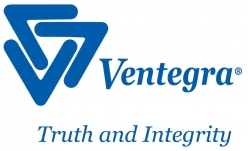

Ventegra

California, United States
December 2014
Other human health
Service with Minor Environmental Footprint
United States
Ventegra is proud to be classified as the first of a new class-of-trade: Medical Benefit Manager (MBM). As an MBM, Ventegra’s Pharmacy Services Administration (PSA) program offers innovative solutions for cost-efficient pharmaceutical services that maximize benefits for payors, providers and patients. Their ideas push the boundaries of current practices in managing healthcare costs. They understand the unique needs and concerns of employers, managed care organizations (MCOs), providers (both pharmacy and medical), trade organizations and pharmaceutical industry that enables them to improve the way drug benefits are designed, delivered and managed. For example, unlike PBM’s, the Ventegra acquisition cost-based PSA solution provides payors with the assurance that what is billed to them is what was paid to the pharmacy. Unlike PBM’s, their proprietary Robo-Rebate process ensures 100% of available discounts (including rebates) are available to clients on a monthly basis and not siphoned off for other purposes. Their dedicated team of professionals helps our clients improve efficiencies, lower costs, and improve the overall quality of care.
Overall B Impact Score
Governance 18.7
Governance evaluates a company's overall mission, engagement around its social/environmental impact, ethics, and transparency. This section also evaluates the ability of a company to protect their mission and formally consider stakeholders in decision making through their corporate structure (e.g. benefit corporation) or corporate governing documents.
What is this? A company with an Impact Business Model is intentionally designed to create a specific positive outcome for one of its stakeholders - such as workers, community, environment, or customers.
Workers 27.7
Workers evaluates a company’s contributions to its employees’ financial security, health & safety, wellness, career development, and engagement & satisfaction. In addition, this section recognizes business models designed to benefit workers, such as companies that are at least 40% owned by non-executive employees and those that have workforce development programs to support individuals with barriers to employment.
Community 18.4
Community evaluates a company’s engagement with and impact on the communities in which it operates, hires from, and sources from. Topics include diversity, equity & inclusion, economic impact, civic engagement, charitable giving, and supply chain management. In addition, this section recognizes business models that are designed to address specific community-oriented problems, such as poverty alleviation through fair trade sourcing or distribution via microenterprises, producer cooperative models, locally focused economic development, and formal charitable giving commitments.
Environment 8.6
Environment evaluates a company’s overall environmental management practices as well as its impact on the air, climate, water, land, and biodiversity. This includes the direct impact of a company’s operations and, when applicable its supply chain and distribution channels. This section also recognizes companies with environmentally innovative production processes and those that sell products or services that have a positive environmental impact. Some examples might include products and services that create renewable energy, reduce consumption or waste, conserve land or wildlife, provide less toxic alternatives to the market, or educate people about environmental problems.
Customers 15.5
Customers evaluates a company’s stewardship of its customers through the quality of its products and services, ethical marketing, data privacy and security, and feedback channels. In addition, this section recognizes products or services that are designed to address a particular social problem for or through its customers, such as health or educational products, arts & media products, serving underserved customers/clients, and services that improve the social impact of other businesses or organizations.
What is this? A company with an Impact Business Model is intentionally designed to create a specific positive outcome for one of its stakeholders - such as workers, community, environment, or customers.